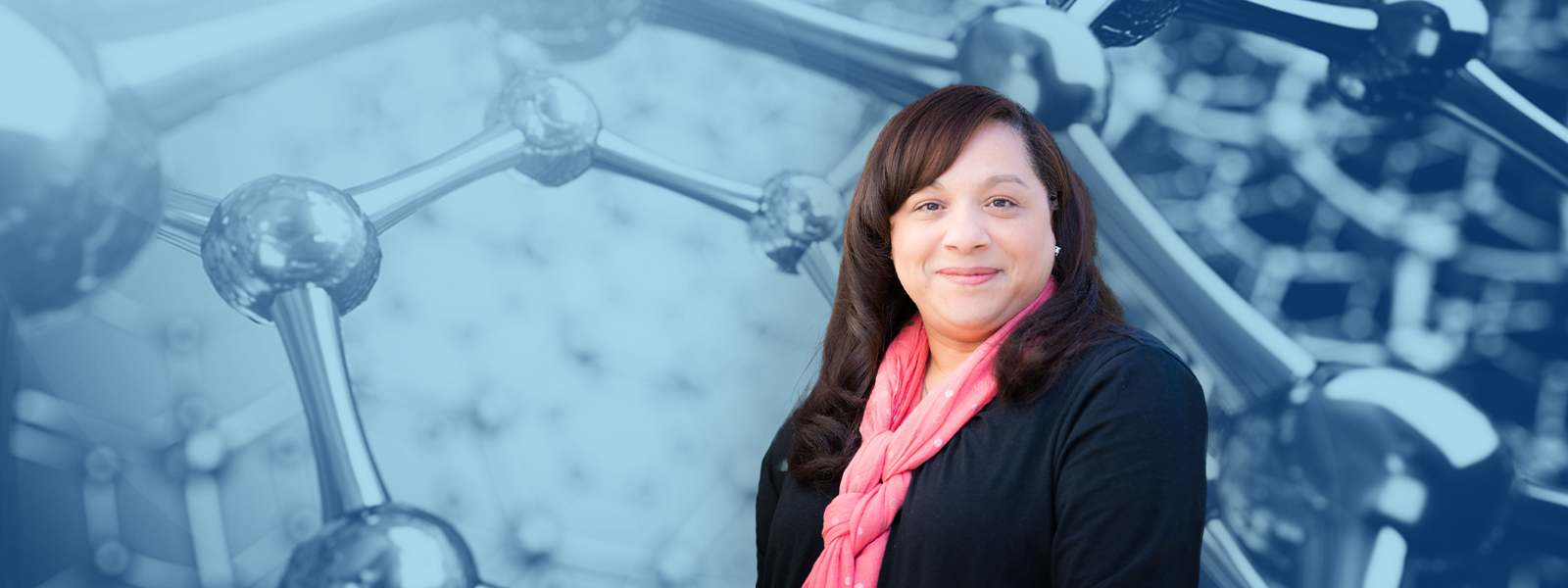Josephine Allen, Ph.D., associate professor and Genzyme Professor of Materials Science & Engineering, has received a National Institutes of Health (NIH) R21 Award to better understand the native behaviors of cells in the human body. Dr. Allen seeks to develop a DNA-based hydrogel platform that recreates the complex network of molecules and proteins that provide structure and support for cells in the human body. With that customizable framework in place, researchers can increase their understanding of the principles, mechanisms and processes that affect cell health or dysfunction.
An NIH R21 grant is designed to encourage exploratory and developmental research by supporting the early and conceptual stages of a project’s development.
“Within the biomedical field, there is a tremendous effort to study a multitude of cell processes, including cell-cell communication, cell-matrix interactions, cell signaling, pharmacological effects and differentiation,” Dr. Allen said. “So, the more closely the cell culture system replicates the native cellular environment, the more closely the cultured cells will model their native behaviors.”
As cell research has advanced, several different 3D culture replication strategies have emerged as significant advancements over their 2D predecessors. The most promising approaches include those that mimic the native extracellular matrix’s (ECM) architecture, mechanics and composition, thereby providing ideal biological signaling and cellular recognition sites that promote normal cell behavior.
DNA-based hydrogel platform technology is significant because it eliminates the need for complex chemical interactions. It also takes advantage of the rapid self-assembly and spontaneous fibril formation that occurs when DNA is combined with ECM protein collagen, providing the scaffold for cell network formation. In addition, it utilizes functional DNA aptamers to render the hydrogel bioactive. In the end, this technology is poised to promote cellular functions that are more native and reproducible to a broad community of biomedical researchers.
“The ability to study native behaviors of cells is critical to biomedical and biological studies aimed at understanding cellular functions, particularly those in diseased states. Utilizing culture matrices that mimic the cellular recognition sites and signaling that exists within a native extracellular matrix (ECM) is the best way to achieve that,” Dr. Allen said.
If successful, Dr. Allen expects the research to reveal the full breadth and potential of DNA-collagen-based materials to mimic a tissue-specific ECM and serve as a material platform for a wide array of biomedical studies.
“We intend to develop a library of DNA-collagen bulk matrices with well-defined synthesis conditions capable of tunable mechanical properties and bioactivity for a range of cell responses,” Dr. Allen said. “These would include cell-cell interactions, cell-matrix interactions, pharmacological studies, modeling healthy or diseased cells, stem cell research and an array of other fundamental studies of tissue-specific cell behaviors.”

